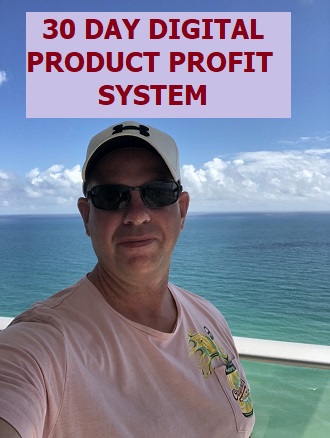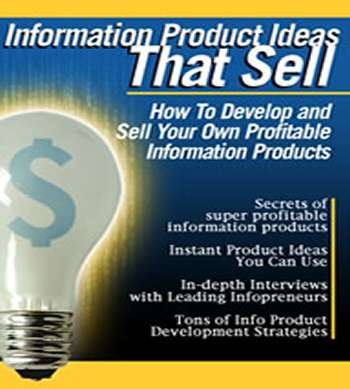When it comes to building your own online business, one of the best approaches is to sell your own products.
That can mean software, licensed products (drop-shipped or stocked) or more likely, information products (books, ebooks, seminars, video series, etc…)
The challenge for many people though is what they can create their product around when they don’t feel as though they have any particular insight, knowledge or expertise.
In other words, how do you create a product when you know nothing?
4 Ways To Create Products Even When You Aren’t An Expert
Having spent the majority of my life personally creating products or leading teams within companies to create products, we can speak with some authority on this topic.
Especially considering the many online entrepreneurs we have worked with through Information Marketer’s Zone, here are some paths to success when it comes to creating information products.
1. You Know More Than You Think
Our advice is typically to select niche markets based on a combination of your interests and passions as well as well researched commercial viability.
Now, most of us who tap into our interests or passions do have a degree of knowledge that we may take for granted.
What we find when we help people launch their product creation activities, they often are shocked to know that they can write more than 50% of the product with the knowledge they already have.
Perhaps they followed the news, read magazines, participated in discussion groups and read a few books already around their area of interest…that gives you a leg up on what beginners entering your market have.
Often we associate with people in our “off-time” around our interests and passions and learn “inside” tips that can be packaged into info products quite nicely.
Simply participating or taking an interest in a market gives you a leg up on others and typically gives you enough to get started outlining and then filling in the content for your product.
2. Research…I Mean Learning!
What others call “researching” your market I like to call “learning” or “participating” – research sounds too painful and boring whereas if you have an interest in your market, simply learning more about it and talking to others about it is really research.
I do advise you start with an outline to structure your “learning” – it will go quicker that way and make it much easier to package what you learn into your own product.
For example, if your interest is in the “How raise confident children” niche and you get the chance to speak to a parent with a high performing child or a teacher, you will have specific questions that you have in mind that fit the information you wish to bring to others in your product.
The task of talking with others or going to find the answers really isn’t work though since you enjoy the topic in its own right.
Where research becomes overwhelming and exhausting is when you try to create a product around a topic that you “think” will sell well, but that you don’t have the remotest degree of interest in.
Taking some extra time up-front to match your interests with commercially viable niche topics is well worth the effort.
3. Outsource
In approximately 50% of our information products we have outsourced content.
Our strategy for outsourcing follows these basic rules:
- I never outsource an entire product, always like to keep our own stamp on the product adding in our own special take and experiences
- I do outsource basic background information – instead of reading about the “history of…” or the “background to…” – I let others do that for me citing accurate sources. This is typically only a chapter or two in any product I create as I prefer to keep my products practical rather than purely informational
- I do outsource advanced chapters where I find a writer that has direct experience greater than what I have. For example, we wrote an ebook around stress management that included a few chapters on meditation and yoga. While I have practiced both (more meditation than yoga), I am far from a Yoga expert and I felt that I had to insert an “Advanced” chapter around Yoga. I went to the freelance sites and found a writer to is also a Yogi (yoga practitioner and teacher for over 20-years). Outsourcing to him made total sense
- I always make sure the product is outlined in detail and the outsourced contractor is given very specific directives (usually questions) to guide their research and writing – this leads to much better results and often lower costs as freelancers like certainty, charging more if they are not sure about the project
4. Partner, Pay, JV, etc..
The other method that can work extremely well is to find someone who has advanced knowledge around your topic and that you believe you can have a working relationship with (important), then work out a deal where you either share the revenue from the project, (Ex 20/80 or 30/70 for their contribution to content) or where you pay them for their time OR where you JV and work out terms to co-promote if they are also a product owner or business owner that you can help.
This model comes with the most risk in terms of having to form relationships with partners, have a certain degree of trust in those partners and then agree/live up to the terms of the agreement either good or bad.
You Can Create Your Product…
It’s time to stop doubting your ability to create a product that will sell and get on with selecting your niche market, determining its commercial viability and then making it happen.  I would highly recommend you join others that have walked in your shoes over at Information Marketer’s Zone and get the shortcuts, fast-track training and 1:1 support in the mentors forum that will help you make your product creation and launch a success.



